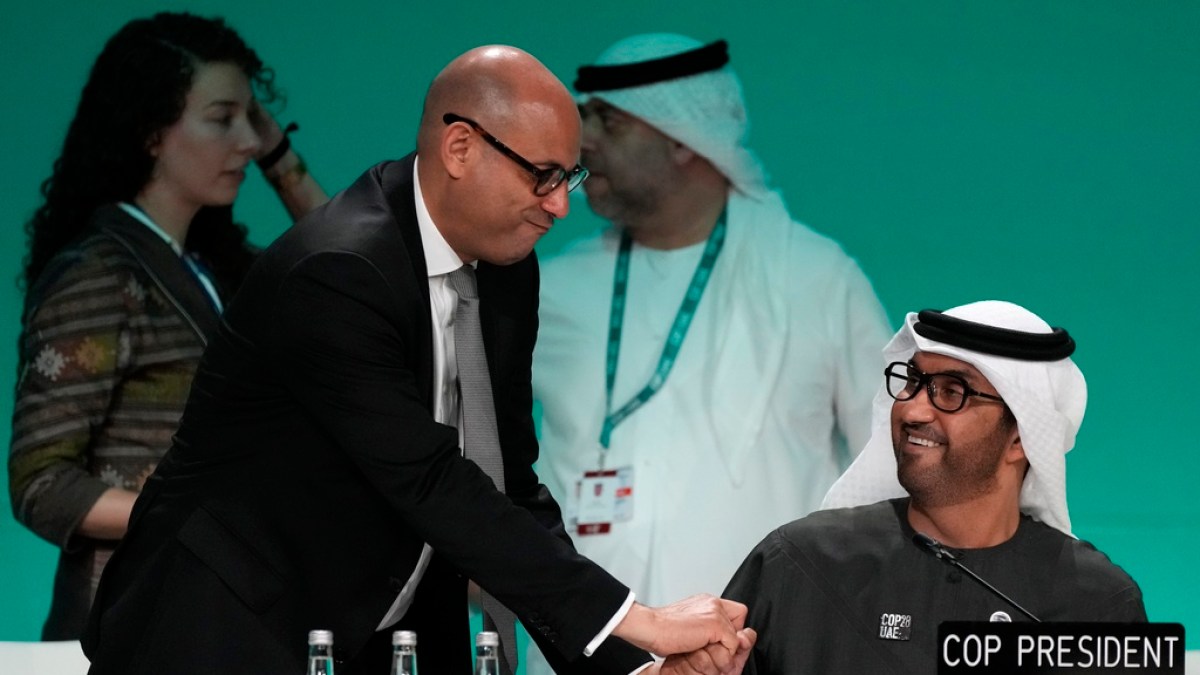Oil-rich countries have pushed back against proposed language that underscores need to move away from fossil fuels.
A draft deal at the COP28 climate talks in Dubai stops short of calling on nations to gradually phase out fossil fuels, whose use is the primary driver of climate change and increasingly extreme weather across the globe.
The draft was released on Monday, and its critics alleged that oil-rich countries have used their influence to water down its language on the need to eliminate fossil fuels.
“You know what remains to be agreed, and you know that I want you to deliver the highest ambition on all items, including on fossil fuel language,” COP28 President Sultan al-Jaber said to the summit, noting that there is still time to iron out differences before the conference concludes on Tuesday.
While more than 100 countries of the nearly 200 attending the United Nations climate talks have called for planet-warming fossil fuels to be phased out, oil-producing nations such as Saudi Arabia and Iran have firmly opposed the inclusion of such language.
The Reuters news agency reported that the United Arab Emirates, which is hosting the summit, had come under pressure from Saudi Arabia to drop any mentions of fossil fuels from the conference’s agreement. It cited unnamed sources with knowledge of the discussions for its report.
Monday’s draft nixes a previous call to “phase out” all fossil fuels and offers eight options countries “could” consider to cut emissions.
The conference has faced criticism for close ties with fossil fuel interests from the start, especially after the UAE named al-Jaber, who runs a state oil company, to preside over the climate negotiations.
Al-Jaber also came under fire after a video emerged in which he appears to dispute some of the science around climate change.
As we approach the finish line of #COP28, my main message is clear:
We need an ambitious outcome that demonstrates decisive #ClimateAction and a credible plan to keep the 1.5°C warming limit alive and to protect those on the frontlines of the climate crisis.
— António Guterres (@antonioguterres) December 11, 2023
In a statement on Monday, the US Department of State said the draft’s language around fossil fuels needs to be “substantially strengthened”.
German Foreign Minister Annalena Baerbock also said her government could not support the deal.
Some climate advocates were even more unsparing.
“If this race-to-the-bottom monstrosity gets enshrined as the final word, this crucial COP will be a failure,” Jean Su from the Center for Biological Diversity told the Associated Press.
Small island nations who will bear a disproportionate share of the hardship produced by climate change have also slammed the draft, which they described as a death warrant.
“We will not go silently to our watery graves,” said John Silk, the head of the Marshall Islands delegation.
Check out our Latest News and Follow us at Facebook
Original Source

